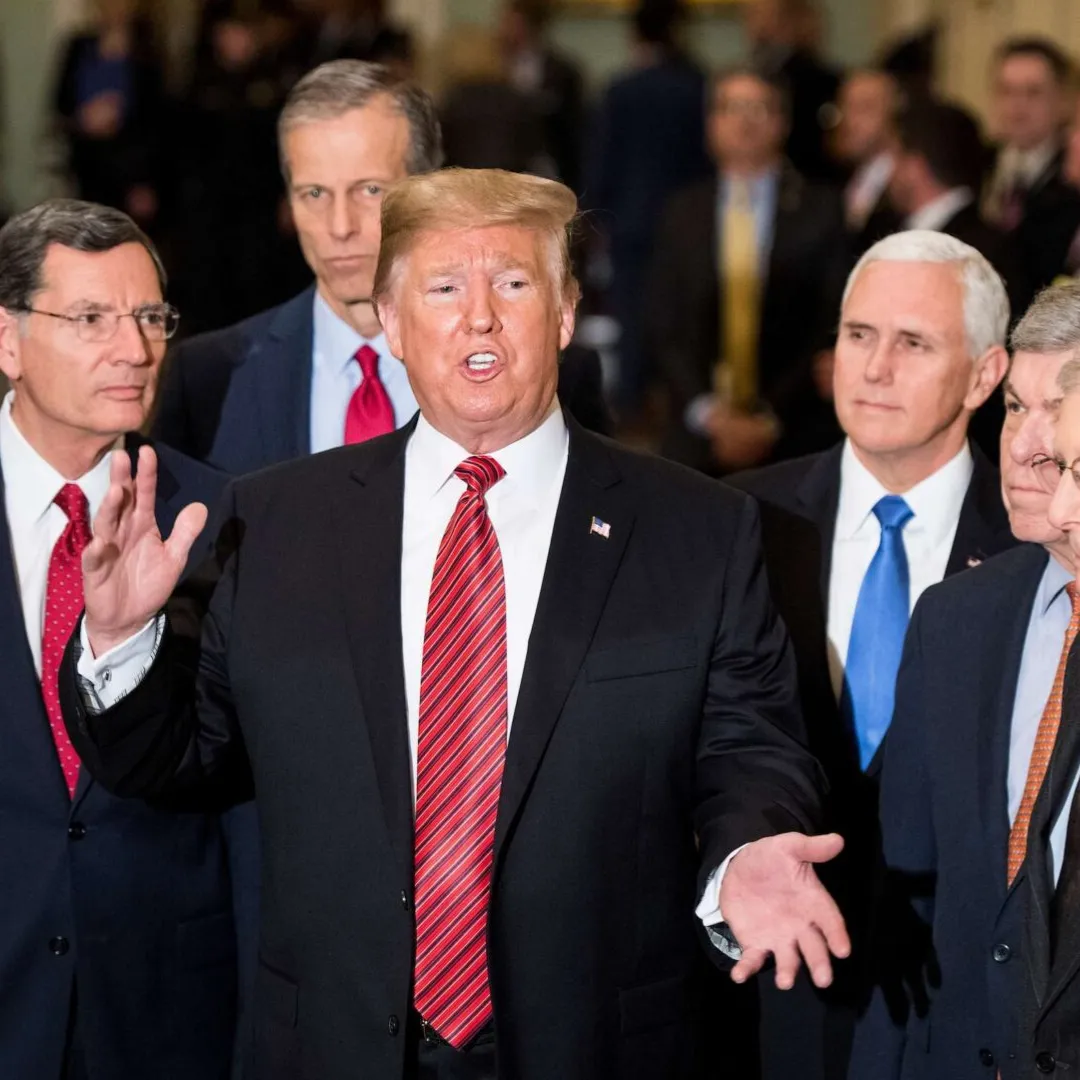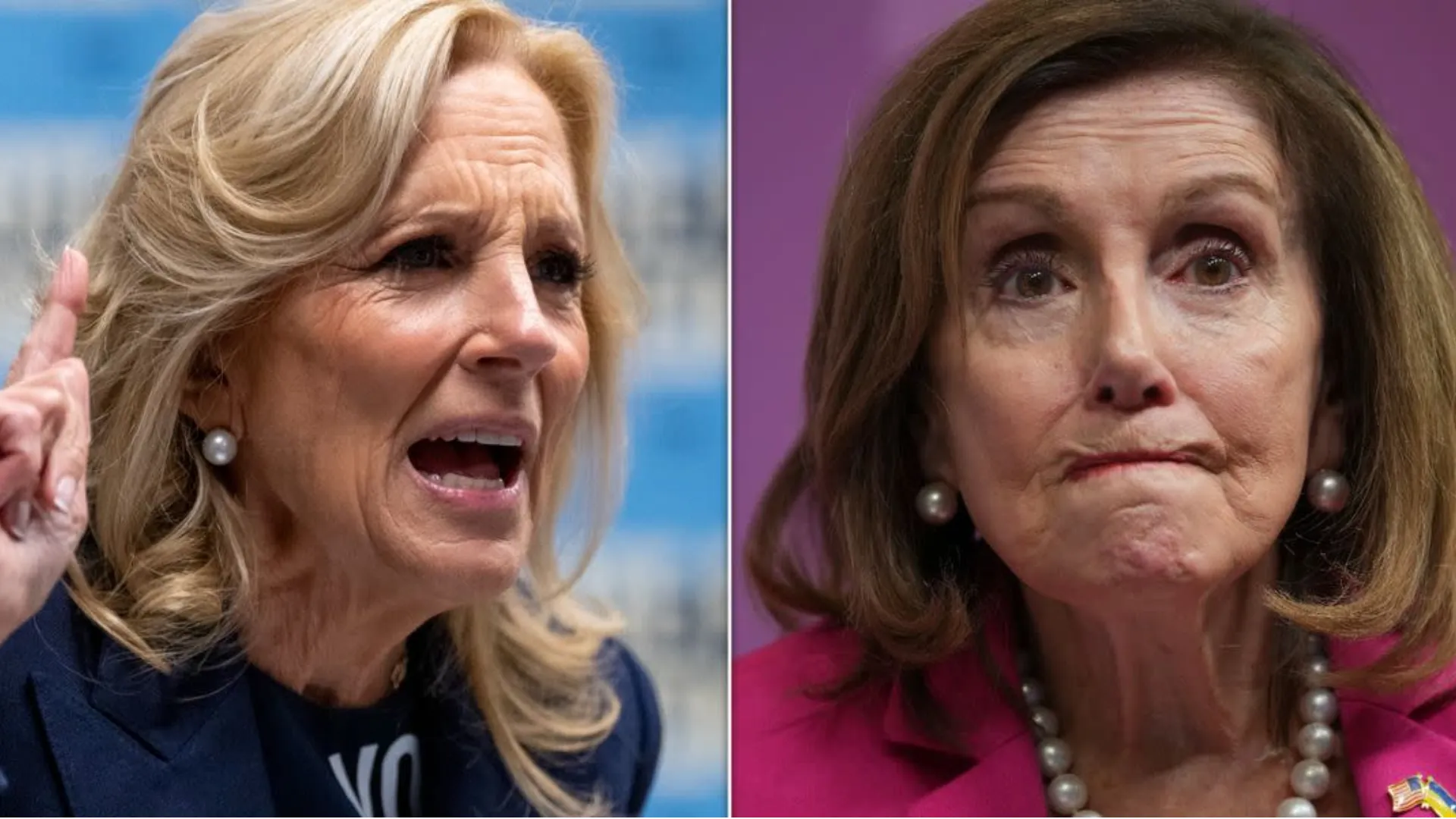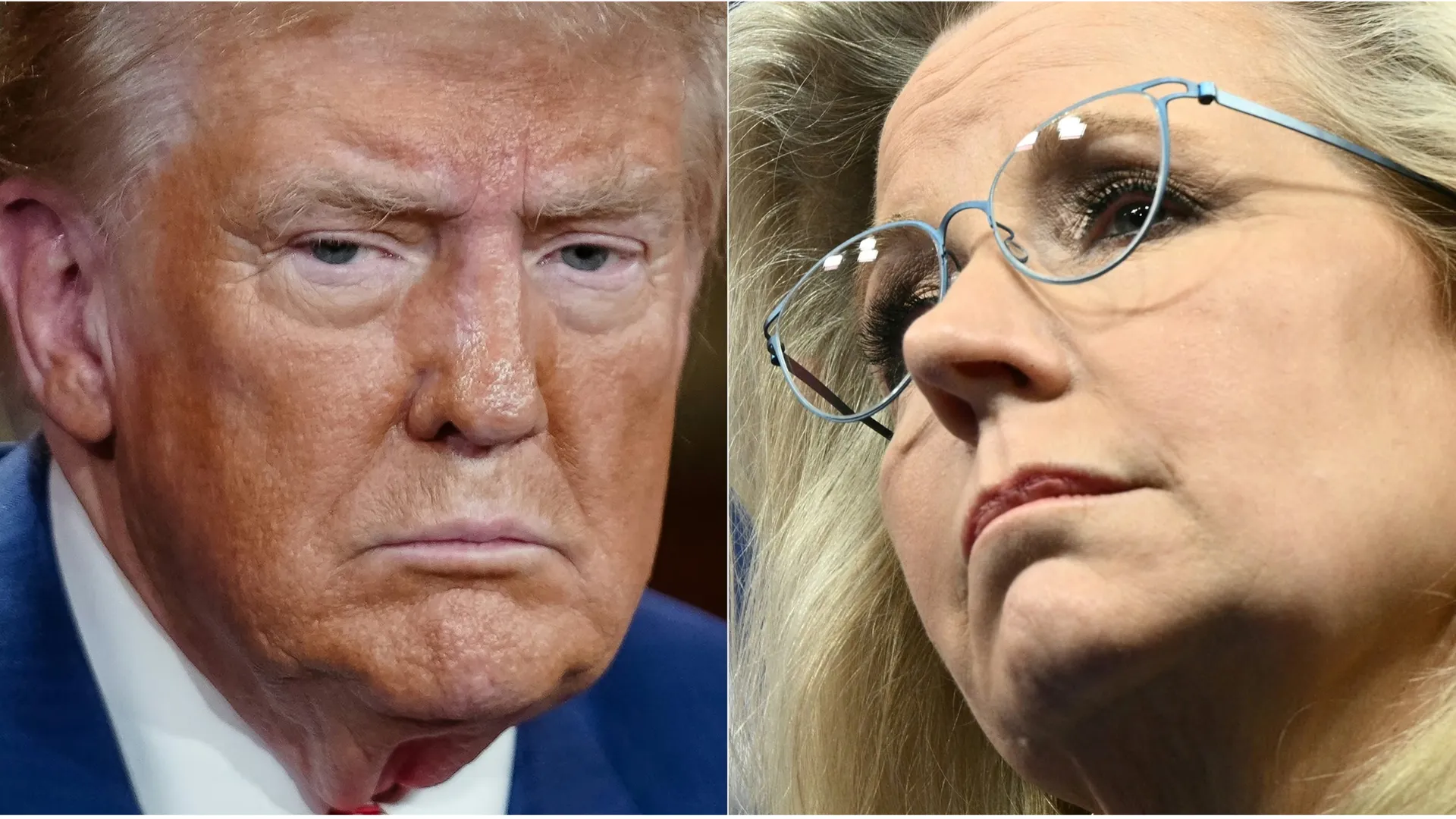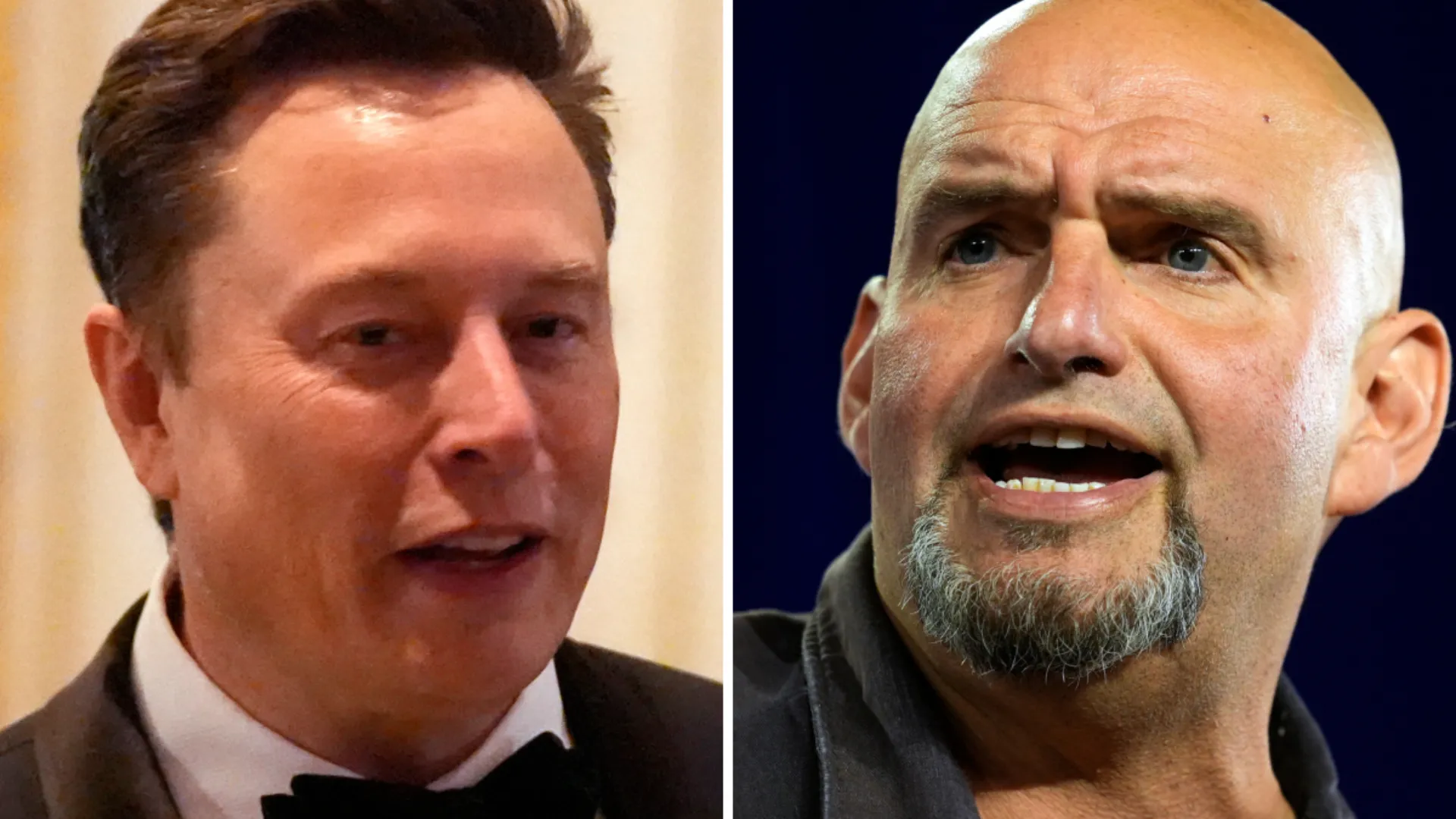
As President Donald Trump’s sweeping tariff policies continue to reverberate across global markets and dominate political headlines, they became the unlikely focus of Saturday Night Live’s Easter-themed cold open this weekend.
In a biting satirical sketch that blended biblical references with political parody, SNL poked fun at the president’s economic strategy—particularly the chaos caused by his international tariff regime—and the volatile stock market that followed in its wake.
The opening scene was a parody of the well-known biblical moment known as the “Cleansing of the Temple,” in which Jesus expels the money changers from a sacred space.
But this time, the sacred space was reimagined as the American economy, and the central figure of Jesus was played by SNL cast member Mikey Day—joined shortly by James Austin Johnson’s Trump, who proclaimed himself “Donald Jesus Trump.”
“The money’s gone,” Johnson said, making his grand entrance. “It’s me, your favorite president, Donald Jesus Trump, comparing myself to the son of God once again.”
This audacious comparison was just the beginning of the sketch’s comedic takedown of Trump’s recent economic moves, which have rattled investors, confused markets, and raised serious concerns among economists.
“Many people are even calling me the Messiah,” Johnson’s Trump continued, “because of the mess-I-uh made out of the economy.”
The sketch comes on the heels of Trump’s latest attempts to reshape the global trade landscape. Over the past month, his administration has imposed a series of steep “reciprocal” tariffs, including a 145% levy on Chinese goods and a 10% blanket tariff on all other imports.
The policy rollout—unfolding under the guise of an economic emergency declaration—triggered wild swings in the stock market and led to concerns about inflation, consumer price hikes, and the overall stability of the U.S. economy.

After a brief rally midweek, prompted by Trump’s announcement of a 90-day pause on some of the tariffs, the markets plunged again following a renewed push for even higher tariffs on Chinese imports.
The result: a week of instability across the Dow Jones, Nasdaq, and S&P 500, leaving many investors stunned and Americans anxious about their financial future.
It was this back-and-forth that SNL seized upon with characteristic sharpness. In the sketch, Trump brags that his tariffs were “working so well [he] had to stop them,” and then launched into a mock explanation of the chaos.
“I said, let me cook, and then I burned dinner badly so we had to stop,” Johnson’s Trump quipped. “But now, everything is back exactly how it was, minus a few trillion dollars and a historic transfer of wealth from the middle class to my buddies.”
The studio audience erupted with laughter—but for many viewers, the punchline cut close to home.
Perhaps the sketch’s most memorable line came when Johnson’s Trump compared the market’s rollercoaster to a certain biblical resurrection.
“The stock market did a Jesus,” he said. “It died, then on the third day it was risen, and then on the fourth day it died again, possibly never to return—just like Jesus.”
The blend of religious metaphor and financial commentary wasn’t just a comedic flourish; it highlighted a deeper anxiety felt by many Americans watching their retirement accounts suffer under a market rocked by policy uncertainty.
In homes across the country, jokes like “Jesus Christ, where did my 401(k) go?”—echoed in the sketch—have taken on a grim, ironic truth.
“Jesus Christ is the name we’ve been saying a lot lately,” Johnson’s Trump said in the closing moments of the cold open. “We look at our 401(k) and say ‘Jesus Christ, where did it all go?’ I don’t know, but we’re gonna fix that. Or not. We’ll see. Should be interesting.”
For decades, Saturday Night Live has served as a cultural barometer, using comedy to comment on the week’s biggest political stories and personalities. From Tina Fey’s portrayal of Sarah Palin to Alec Baldwin’s iconic Trump impersonation during the former president’s first term, the show has long walked a line between entertainment and editorial commentary.
James Austin Johnson, whose Trump impression has earned widespread praise for its accuracy and nuance, has continued this tradition in Trump’s second term. His portrayal of the president as a chaotic, self-aggrandizing showman provides a lens through which audiences can process the surreal nature of modern politics.
This week’s sketch took that approach a step further by drawing on biblical imagery to dramatize the perceived disconnect between Trump’s self-promotion and the real-world consequences of his policies.
“Trump calling himself a ‘Messiah’—even in jest—is so on brand,” wrote television critic Rachel Donnelly. “It’s ridiculous, it’s blasphemous, and it’s exactly what we’ve come to expect. SNL knows how to play with that line between absurdity and truth, and they walked it perfectly this week.”
Unsurprisingly, the sketch sparked a wide range of reactions. Progressive viewers and critics praised it as a timely and hilarious critique of Trump’s economic mismanagement.
“It’s funny because it’s true,” wrote one user on X, formerly Twitter. “My savings got crucified this week.”
But conservative commentators pushed back, accusing the show of bias and tastelessness.
“This is sacrilegious garbage disguised as comedy,” wrote one conservative pundit. “Mock Trump all you want, but dragging religion into it is a cheap shot.”
Still, even critics acknowledged the sketch’s effectiveness in highlighting the volatility and inconsistency of Trump’s tariff policies, which have not only alienated trading partners but confused American business owners and economists alike.
Trump’s trade policy, long a central pillar of his political platform, has entered a new phase of unpredictability. Frustrated with what he views as decades of unfair trade practices—particularly by China—Trump has doubled down on tariffs as a negotiating tool.
His administration maintains that the tariffs are necessary to force other nations to make concessions and to protect American workers.
Yet the economic consequences have been swift and punishing. Prices on consumer goods have risen, business supply chains have been disrupted, and investors are pulling back. Even some of Trump’s staunchest allies have begun to question the wisdom of the tariff approach.
“The market hates uncertainty,” said economist Dr. Harlan Shultz. “You can’t keep announcing huge policy shifts with no implementation plan and expect Wall Street to respond well.”
In fact, the brief boost in stock prices after Trump announced a temporary pause on some tariffs was almost entirely wiped out by week’s end, after he threatened even higher tariffs on Chinese goods. The market remains jittery, with economists warning of a potential recession if the uncertainty persists.
In this context, Saturday Night Live’s parody offered more than just laughs—it provided a form of catharsis. In moments of widespread anxiety, humor often becomes a coping mechanism.
For many Americans grappling with the consequences of economic policy they don’t fully understand, satirical sketches like this one serve as a way to vent, laugh, and confront the absurdities of the political moment.
“The sketch was cathartic,” said comedy writer Alan Fischer. “We’ve all watched the market tank, listened to pundits shout over each other, and tried to make sense of what Trump is doing. SNL condensed all that chaos into five minutes of ridiculous, pointed comedy.”
This week’s episode joins a long tradition of SNL mocking presidential policies with sharp comedic timing. From Richard Nixon and Jimmy Carter to George W. Bush and Barack Obama, every modern president has faced parody on the show. But Trump—thanks to his larger-than-life persona and constant media presence—has become one of SNL’s most frequent targets.
That doesn’t mean the show is one-sided. SNL has mocked Democrats with equal vigor, especially during contentious election cycles. But Trump’s unpredictability and tendency toward self-aggrandizement provide a uniquely rich canvas for satire.
This week’s cold open proved that the writers still have their finger on the pulse of the nation, using comedy to articulate widespread concerns about policy, leadership, and the future.
As Trump’s tariffs continue to roil markets and dominate headlines, the political consequences are still playing out. Meanwhile, comedy remains one of the most powerful tools for shaping public perception and offering a lens through which to understand the week’s events.
By placing Trump in a parody of the “Cleansing of the Temple” and having him declare himself the “Messiah,” SNL didn’t just mock the president—it highlighted the surreal, almost theatrical nature of contemporary American politics.
And while some viewers may take offense, others will see the sketch as a necessary moment of levity in an increasingly chaotic world. In either case, Saturday Night Live continues to do what it has done best for nearly 50 years: turning the news of the week into a stage for laughter, reflection, and sometimes, uncomfortable truths.






